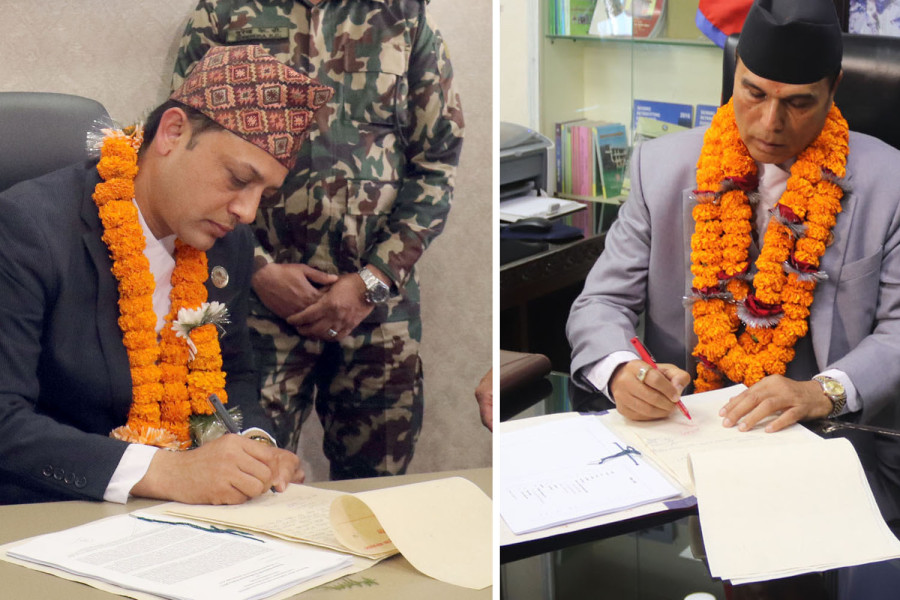Editorial
Right jobs, wrong people
Examples abound of individuals with conflicts of interest taking up ministerial positions.
One of the minor characters in Ulaar, a novella by Nayan Raj Pandey, is a politician who is furious about not getting the portfolio of telecom minister. He believes he deserves the portfolio because of his extensive knowledge of the sector. His claim to fame in the field? He had once been a telephone operator and was found guilty of falsifying trunk-call bills. Sacked from his job, he grows a beard, joins politics, and eventually, becomes the transport minister. But he is unhappy being a transport minister, as he believes he could have done a better job as a telecom minister.
If a few ministers in the Pushpa Kamal Dahal government resemble the shady politician of Pandey's novella, it is not a coincidence but a sad reality of Nepali politics today. To be sure, Pandey was not being prophetic when he wrote the novella over 20 years ago; he was only capturing the political climate of the time. Nearly 20 governments and a polity transformation later, it is the same cast of characters who continue to rule the roost in Nepali politics.
No wonder, then, that Dol Prasad Aryal, a member of Parliament representing the Rastriya Swatantra Party, has become Minister of Labour, Employment and Social Security despite having a clear conflict of interest. He is reported to have investments in manpower and remittance companies. (Aryal on Wednesday took to Twitter to claim that the reports about his conflicts of interest were malicious.) Similarly, Bikram Pandey, a member of Parliament representing the Rastriya Prajatantra Party, has become Minister of Urban Development despite him being a construction-firm owner with big infrastructure contracts with the government. Not to mention Rabi Lamichhane, the party chairperson, who chose to lead the very institution investigating him in a case of citizenship fraud.
Examples abound of individuals with conflicts of interest taking up ministerial and constitutional positions in past governments. Those with investments in big private hospitals have become health ministers, and industrialists have become industry ministers. If not themselves, their cronies have taken the portfolios. Such individuals have resisted calls from the stakeholders to bring reforms in the field. They are also experts in smearing the image of their critics. To take one example, Dr. Govinda KC has been at the receiving end of many vilification campaigns for his championing of medical education reform.
Even the new parties have been exposed. During their electoral campaign, Lamichhane and his friends repeatedly promised never to engage in financial and policy corruption. Rajendra Lingden's friends in the Rastriya Prajatantra Party keep repeating a gory vow that they consider doing corruption as sinful as drinking mother's blood. And yet, while deciding who represents the party in the government, they have chosen individuals of dubious qualifications.
The idea that an individual’s involvement in a particular field, irrespective of the nature of that involvement, merits his or her becoming a minister in the field is erroneous—in the worst cases, it is akin to Pandey’s satire of a falsifier of telephone bills looking to be a telecom minister. Surely, the political parties who make these nominations know better than to consider the Nepali electorate incapable of differentiating between vested interest and expertise.




 18.12°C Kathmandu
18.12°C Kathmandu














